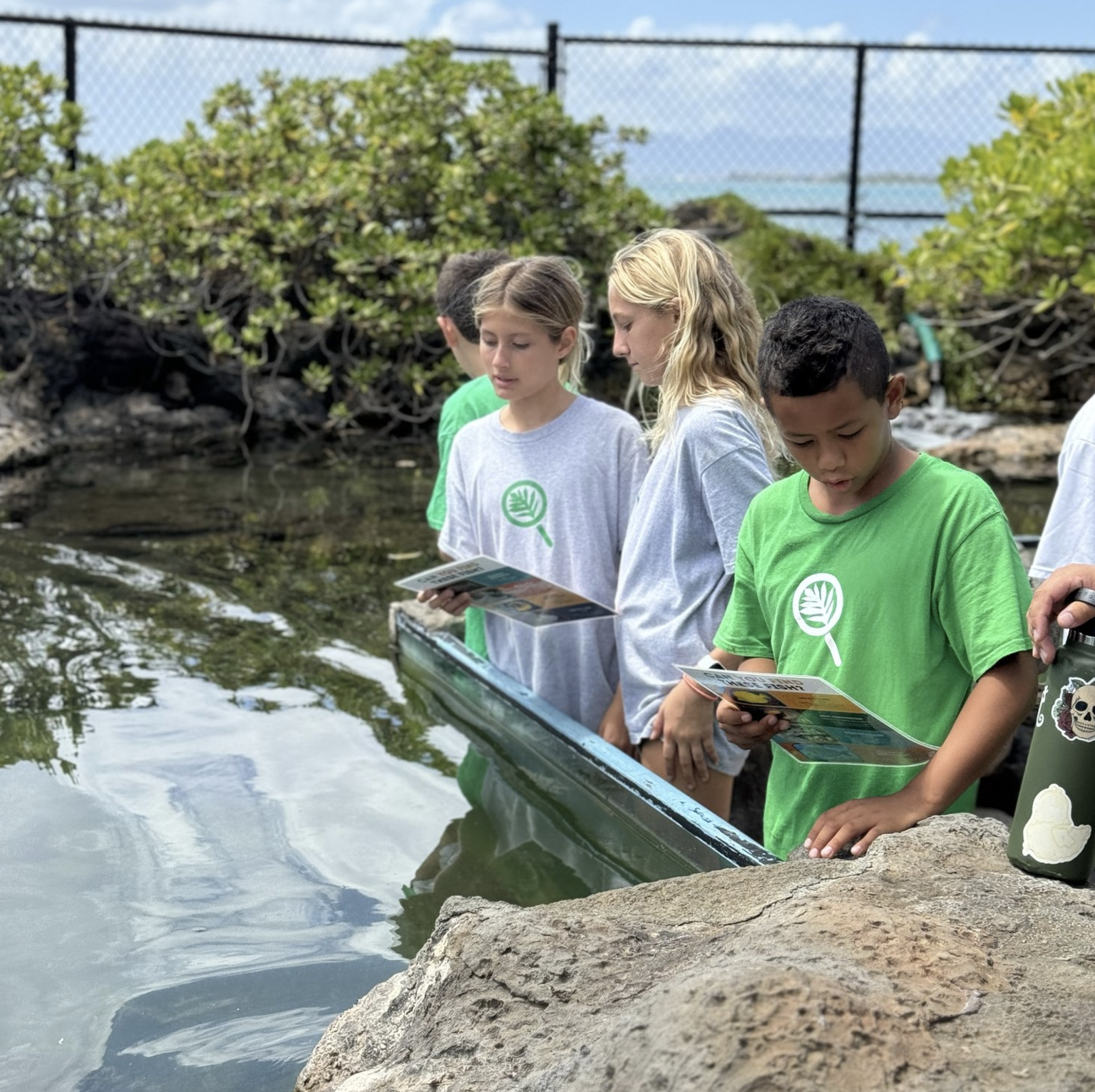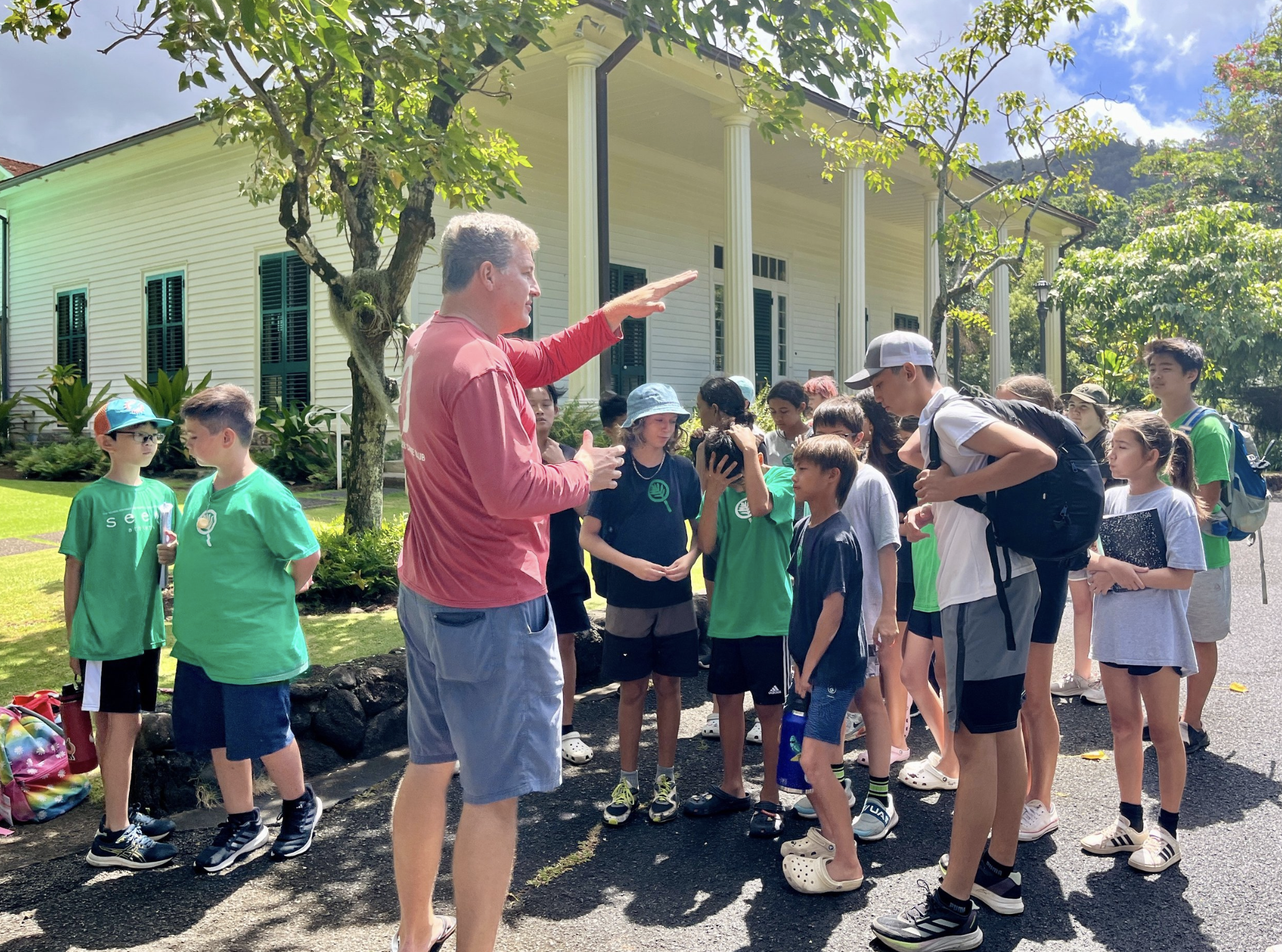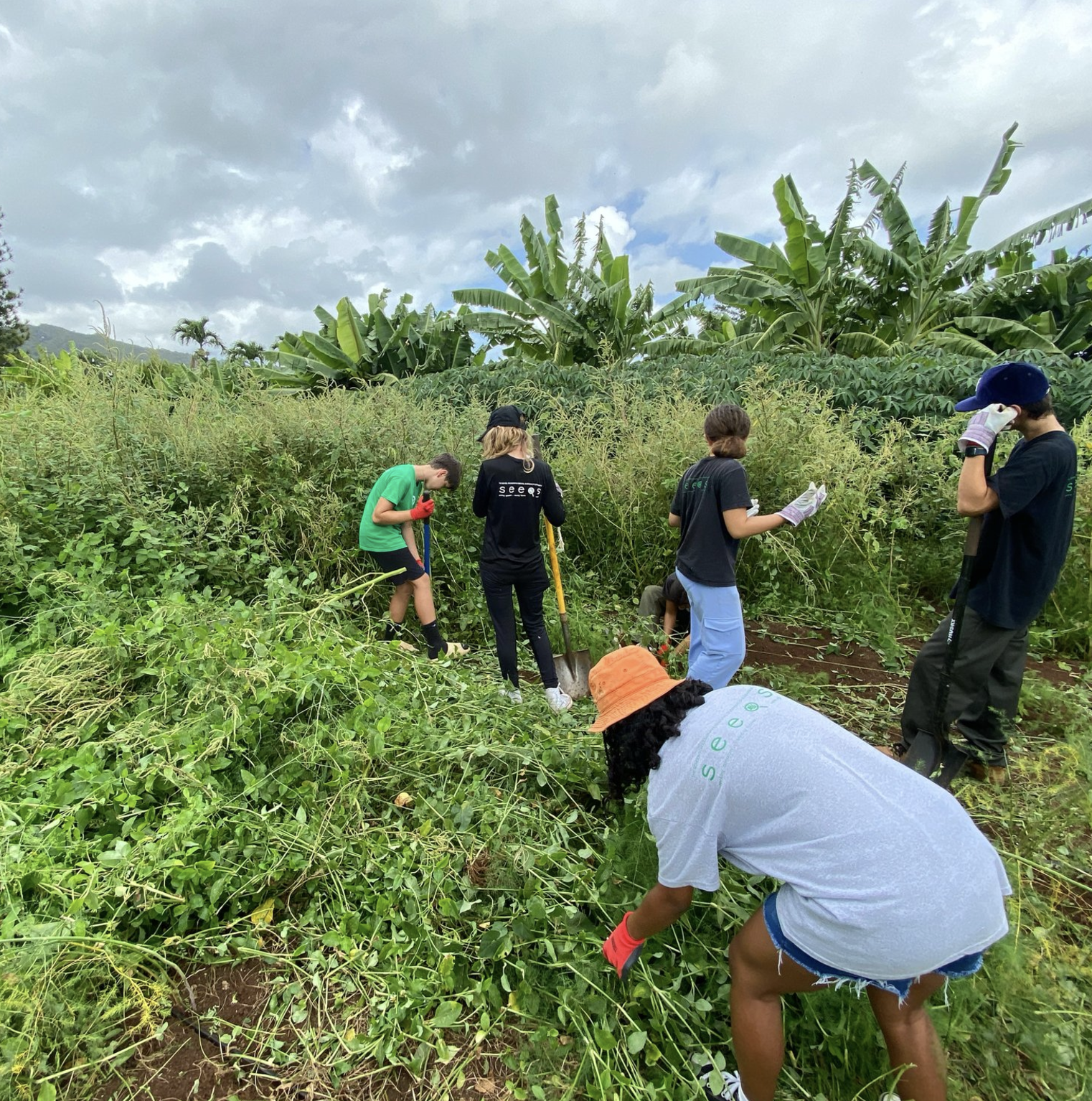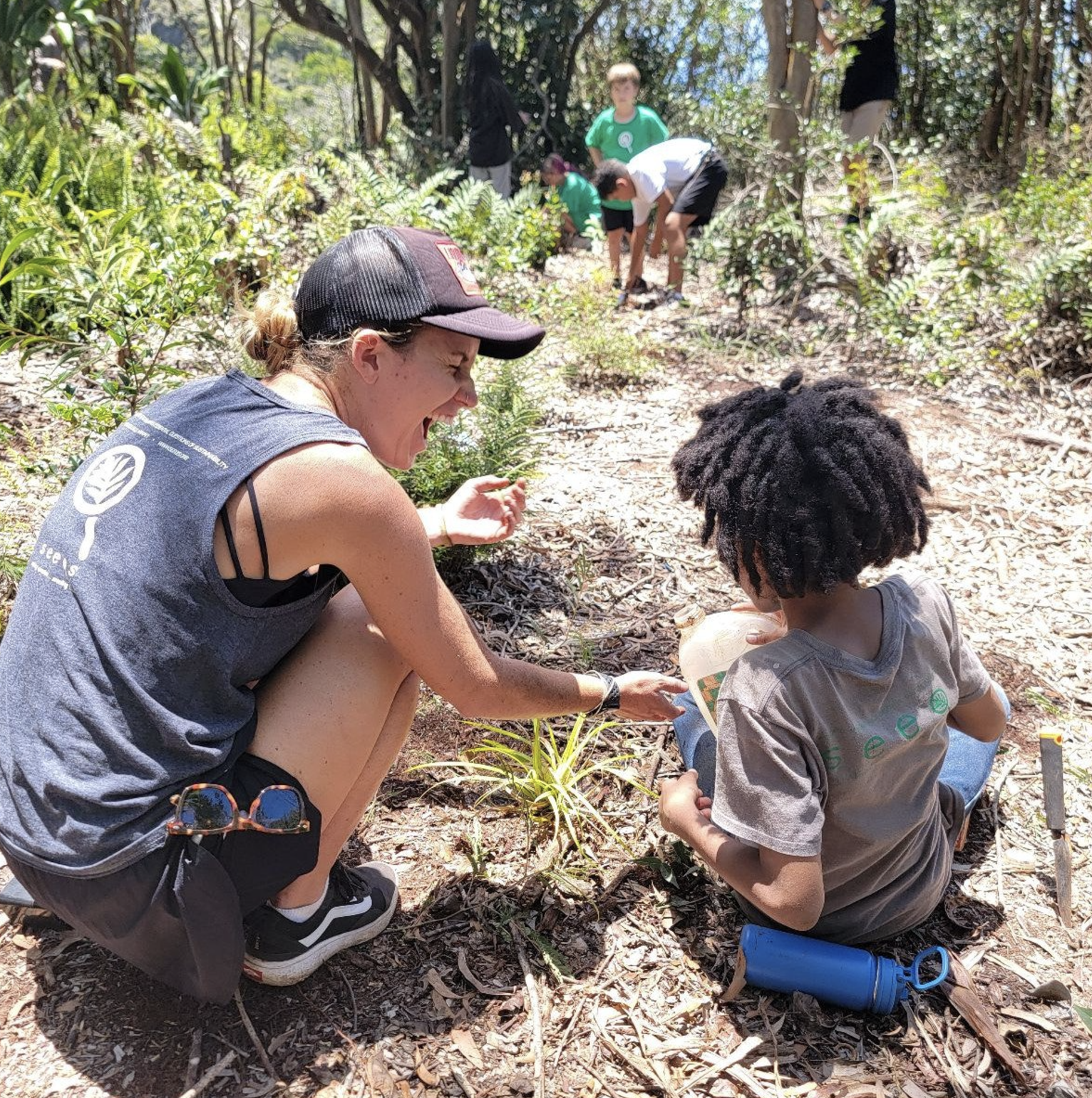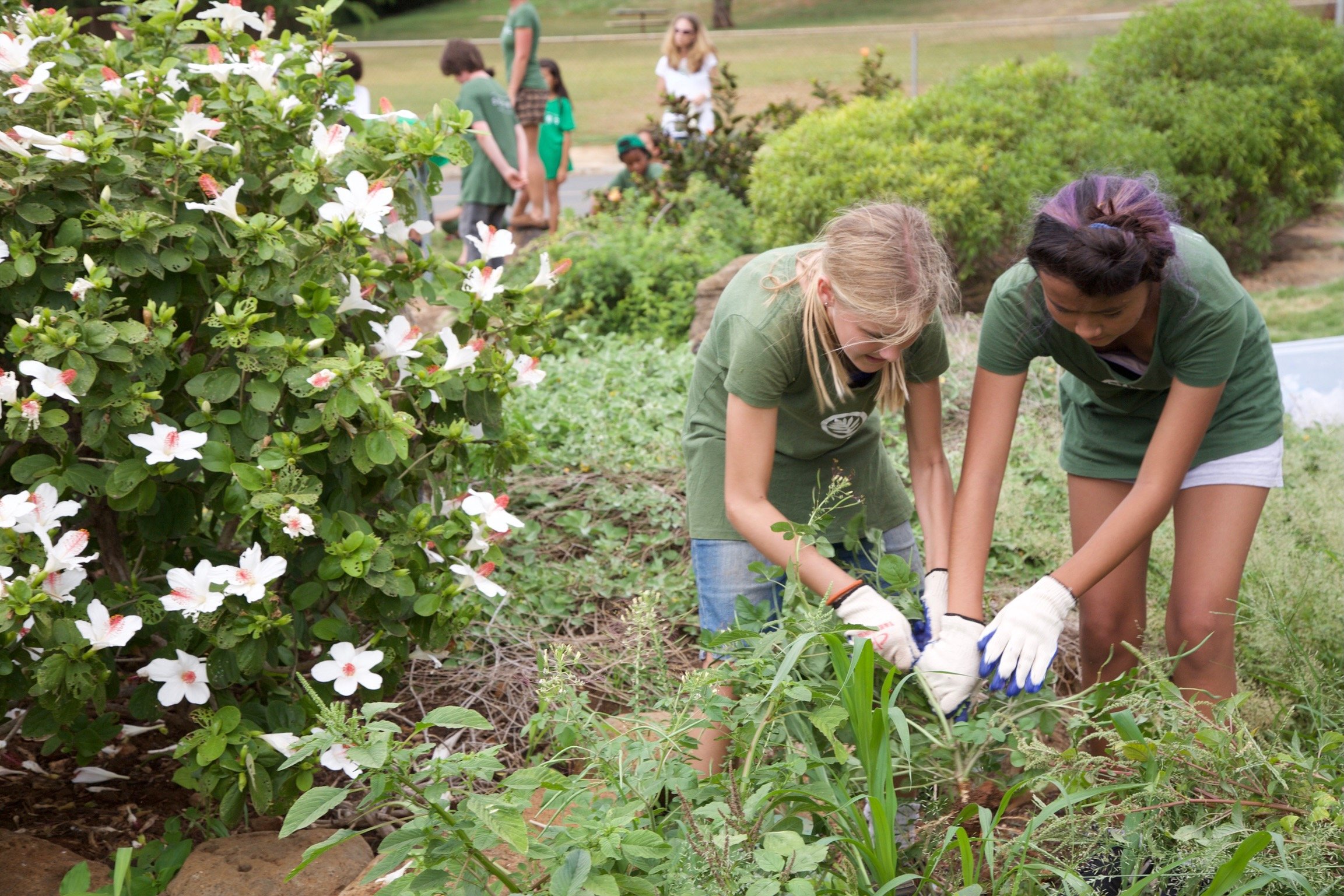
Essential Questions of Sustainability (EQS)
Real-World Learning
SEEQS strives to create a seamless link between academic content and real-world application through project-based learning. As a fundamental part of the SEEQS experience, all students participate in an interdisciplinary, project-based course designed around examining an Essential Question of Sustainability (EQS).
Each EQS course…
Creates a real-world context to apply disciplinary knowledge and skills
Focuses on interconnections between humans and the environment
Engages community members as partners in learning
Empowers students to choose the focus of their project
Motivates students through authentic project exhibitions
Is constantly evolving, guided by the interests, desires, and expertise of students and teachers
What is an Essential Question?
Based on Understanding By Design by McTighe and Wiggins, an Essential Question is relevant, timeless, and broad in scope. An Essential Question has no simple answer but opens up new avenues of inquiry in which students can explore and apply knowledge from all content areas.
As an example, the Essential Question "What do our waters need from us?" might lead to projects involving:
History of Hawai‘i's agriculture and water use
Freshwater resource availability and waste treatment
Transportation and ownership of drinking water
Ocean acidification and ecosystem health
-
Each EQS Course kicks off with a series of field studies, guest experts, and deepening understanding with community partners whose work relates to the Essential Question. Through this experience, students develop background knowledge and begin to focus on specific aspects of the broad Essential Question, pursuing their interests and learning in a real-world context
EQS camp days can look very different depending on the course, but here is an example schedule!
-
During daily two-hour blocks, an interdisciplinary team of teachers engages with students to investigate the essential question. These blocks can be used in various ways, including student-directed projects, teacher-led tutorials and mini-lessons, community outings, guest visits, and focused project work time.
-
Each semester culminates with EQS project exhibitions to an authentic audience that includes SEEQS students, parents, teachers, community members, and experts.
For example, in EQS ChangeMakers, SEEQers examined the essential question, “How can service lead to change?” and for their exhibition, they facilitated a series of workshops teaching community members how to get involved in various forms of volunteer work.
EQS Courses (2024-2025)
See below for a gallery of our current EQS course offerings and essential questions!
Education for Sustainability
To plan and assess the meaningful work students do in EQS courses, teachers use the Education for Sustainability standards published by the Cloud Institute for Sustainability Education. These standards and performance indicators represent the key skills and understandings that will prepare young people to participate in, and lead, the shift toward a sustainable future.
Our EQS Community Partners
SEEQS has had the immense privilege of working with many different people and organizations around Oʻahu. See below for a list of many (but not all!) of our community partners and worksites.
Where We’ve Planted Roots
Our Worksites
Foster Botanical Garden
Heʻeia State Park
Kaʻala Farm
Kalihi Valley
Ka Papa Loʻi ʻo Kānewai
Kuliʻouʻou Ridge
Nā Mea Kūpono
Nuʻuanu Pali
Queen Liliʻuokalani Botanical Garden
Waiheʻe Tunnel
Waikalua Loko Iʻa
Camp Pālehua
“Extraordinary, Equitable Learning”
Share Your Expertise!
Interested in working with us? We invite community members and organizations involved in related issues to contact us if you'd like to work with our EQS courses or talk with our students!









